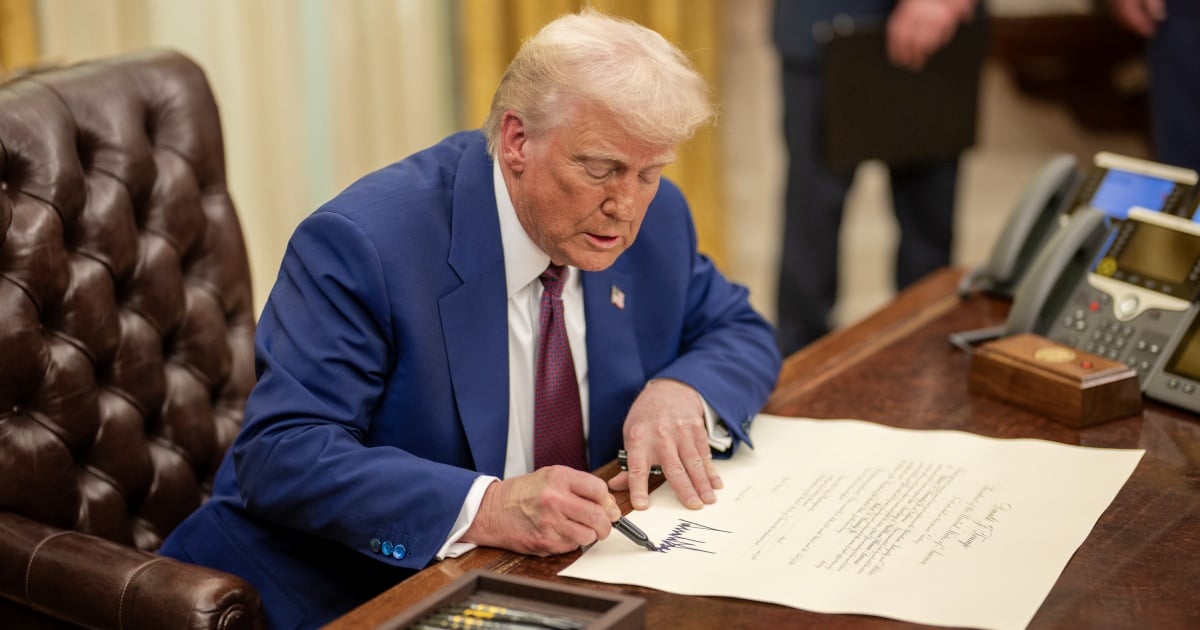The administration under Donald Trump has officially announced a delay in the implementation of the controversial "reciprocal" tariffs. These tariffs will now take effect on August 1, instead of the previously scheduled July 9. This update was confirmed by Secretary of Commerce Howard Lutnick and Secretary of the Treasury Scott Bessent, who joined the President in public statements over the weekend. "The tariffs will be effective on August 1. The President is setting the rates and the deals as we speak," Lutnick stated when questioned by a reporter on Sunday.
High-Stakes Tariff Letters: A Pressuring Tactic
Beginning Monday, the White House has started distributing tariff letters to more than a dozen countries, specifying the tariffs they will face if a trade agreement is not reached by the deadline. Trump explained, "We will send letters on Monday regarding trade agreements [...] it could be 12, maybe 15 [...] We have also finalized agreements, so there could be a mix of letters and agreements," Trump clarified on Truth Social.
Reiterating this stance, Scott Bessent told CNN that this is not an extension but a definitive statement of intent: “This is not a new deadline. What we're saying is: this is what will happen. If you want to move faster, do it.” The letters, signed by Trump, could include tariff hikes of up to 70% for some nations, significantly higher than initially announced.
Negotiations and Tariff Challenges
The tariffs are set to revert to levels established on April 2, a date Trump dubbed as "Liberation Day," marking the start of this new tariff wave. So far, the United States has secured limited agreements with the United Kingdom (maintaining a 10% tariff) and Vietnam (reducing tariffs from 46% to 20%). A truce with China has also been reached to ease tensions.
The European Union is cautiously optimistic about reaching a preliminary agreement. Brussels has increased its engagement with Washington, and according to European sources, "Progress has been made towards a preliminary agreement," although it would be a minimal understanding rather than a comprehensive treaty. Other countries remain more resistant. Japan has warned that it "will not easily yield" in the negotiations. Meanwhile, the BRICS nations—Brazil, Russia, India, China, and South Africa—are preparing a joint declaration to condemn U.S. tariff policies.
Additional Tariff for BRICS-Aligned Nations
Amidst the BRICS summit in Rio de Janeiro, Trump issued a new warning: any nation aligning with the policies of this bloc will face an additional 10% tariff. "Any country aligning with the anti-American policies of the BRICS will have to pay an additional 10% tariff. There will be no exceptions," Trump declared on Truth Social.
Market Reaction: Volatility and Uncertainty
The announcement of the tariff delay had an immediate impact on financial markets. Futures for the Dow Jones, S&P 500, and Nasdaq 100 fell between 0.33% and 0.37% on Sunday night. This setback follows a week of historic gains on Wall Street, partly due to expectations that the White House would avoid implementing harsher measures.
Now, analysts are concerned that volatility could increase with each tariff update. "Investors worry that a stock market at historic highs could become more volatile as the White House releases trade updates," explained Rajeev Sibal, senior global economist at Morgan Stanley, in comments cited by the U.S. press. However, some experts, like Tom Lee from Fundstrat Global Advisors, remain optimistic: “I agree with anyone who says, 'Look, we have reconfigured some of the economic flows around tariffs,’ but that's a positive story (...) This is the most hated V-shaped rally.”
The Bigger Picture: An Aggressive Yet Calculated Strategy
Since taking office, Donald Trump has made tariff policies the cornerstone of his trade strategy, arguing they are necessary to correct the United States' structural deficits. The measures taken since April are part of a "maximum pressure" approach, aimed at forcing rapid negotiations favorable to Washington. Regardless of the outcome, it is clear that tariffs are not just economic tools but also diplomatic instruments in a battle to redefine global trade rules.
Frequently Asked Questions on Trump's Tariff Policy
Why were the tariffs delayed until August 1?
The Trump Administration delayed the tariffs to provide more time for negotiating favorable trade agreements with other countries.
What countries have reached limited agreements with the U.S.?
The United States has reached limited agreements with the United Kingdom, maintaining a 10% tariff, and Vietnam, reducing tariffs from 46% to 20%.
What is the response of the BRICS nations to the U.S. tariffs?
The BRICS nations, including Brazil, Russia, India, China, and South Africa, are preparing a joint declaration to condemn the U.S. tariff policies.
How did the markets react to the tariff delay announcement?
The announcement led to a decline in futures for the Dow Jones, S&P 500, and Nasdaq 100, as the markets reacted to the increased uncertainty.
